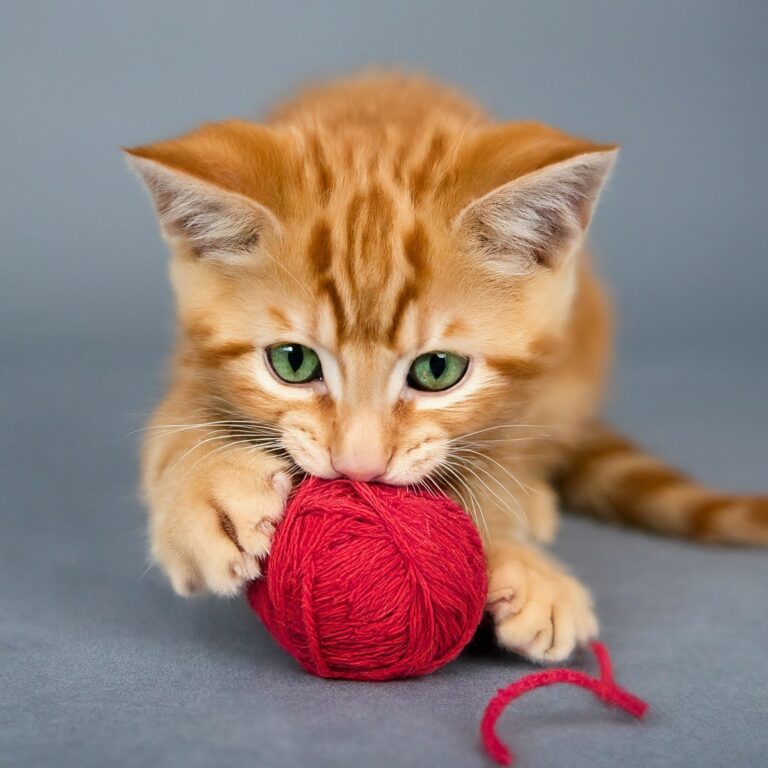Contents
Beyond the Basics: Protein Power for Different Life Stages
Kitten Powerhouse: Kittens are little furballs of pure energy, constantly growing and developing. Their bodies demand a higher protein intake (around 30%) to build strong muscles and bones. This protein fuels their playful antics and rapid growth.
Adult Adventures: As adult cats settle into a more relaxed routine, their protein needs decrease slightly to around 26%. However, this doesn’t mean they don’t require high-quality protein. It continues to be essential for maintaining muscle mass, supporting a healthy immune system, and providing energy for their daily explorations.
Senior Support: As your feline friend enters their golden years, their protein needs might shift again. Senior cats may benefit from a slight increase in protein (up to 30%) to support their aging bodies. This helps maintain muscle mass, which can decline with age, and promotes overall health.
The Activity Factor: Remember, a cat’s protein needs aren’t solely determined by age. The ultimate couch potato feline might need less protein compared to their adventurous counterpart who scales curtains with the agility of a panther. Consider your cat’s daily activity level when evaluating their protein requirements.
Beyond the Numbers: Quality Matters Most
The protein percentage on a cat food label is just one piece of the puzzle. The quality of the protein source is equally, if not more, important. Cats are obligate carnivores, meaning their bodies are specifically designed to digest and utilize protein from animal sources. Look for cat food that lists high-quality animal protein like chicken, fish, or beef as the first few ingredients on the label. These ingredients provide essential amino acids that cats cannot synthesize on their own.
The Dark Side of Deficiency: Recognizing the Signs
While protein is essential, a deficiency can lead to health concerns. Here are some warning signs to watch out for:
- Lethargy: Is your usually playful kitty a cuddle puddle on the couch all day? This lack of energy can be a sign of protein deficiency.
- Thinning Fur: A dull, patchy coat might indicate your cat isn’t getting the protein building blocks needed for healthy fur growth.
- Muscle Loss: Protein is essential for muscle maintenance. If your cat seems scrawny or struggles to jump, protein intake might need evaluation.
Remember: If you suspect your cat has a protein deficiency, consult your veterinarian. They can assess your cat’s specific needs and recommend the best course of action, whether it’s adjusting their food or addressing any underlying health concerns.
Beyond Chicken and Fish: Exploring Alternative Protein Sources
While chicken, fish, and beef are excellent protein sources for most cats, some feline friends might have dietary restrictions. Here’s where alternative protein sources come in:
Limited Ingredient Diets: For cats with allergies or sensitivities, a veterinarian might recommend a limited ingredient diet that focuses on a single protein source, such as duck or rabbit.
Kidney Concerns: For cats with kidney issues, a vet might recommend a lower protein diet to reduce the workload on their kidneys. There are also specialized kidney-care cat foods formulated with specific protein sources and levels.
Plant-Based Protein: While not as readily utilized by cats as animal protein, plant-based protein sources like peas or lentils can be included in cat food formulations. However, consult your veterinarian before switching your cat to a plant-based diet, as they may require additional supplements to ensure complete nutrition.
Remember: Alternative protein sources should only be considered under the guidance of a veterinarian to ensure they meet your cat’s specific needs.
Choosing Wisely: Decoding Cat Food Labels Like a Pro
While protein content is an important factor, it shouldn’t be the sole deciding factor when choosing cat food. Here are some additional tips:
- Look Beyond the Numbers: Consider the overall quality of the ingredients.
- Read the Label: The first few ingredients should be recognizable protein sources.
- Beware of Marketing Hype: Don’t fall for fancy marketing terms. Focus on the actual ingredients list.
- Consult Your Veterinarian: They can guide you towards the best food for your cat’s specific needs and health conditions.
Remember: When in doubt, prioritize quality over flashy packaging or marketing claims.
The Final Purrfect Note: By understanding the importance of protein for your cat at different stages of life, along with the significance of protein


